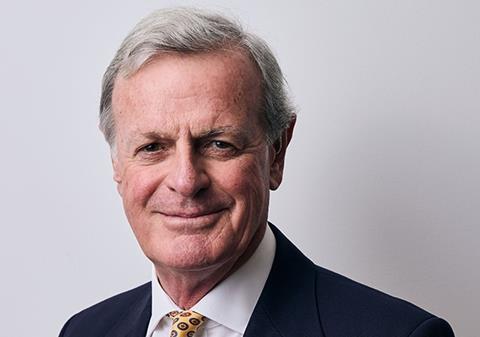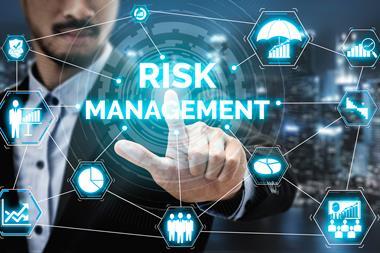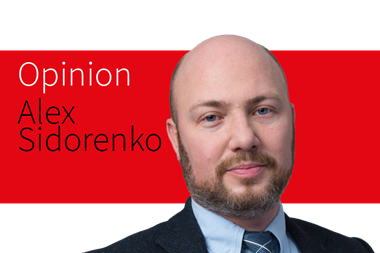General Sir Richard Shirreff – chair of the Healix security and risk advisory board, delves into the key challenges facing NATO post-summit and their implications for the business community.
In today’s volatile geopolitical landscape, NATO stands as a bulwark of stability and resilience, ensuring peace and security across the Euro-Atlantic region.
The NATO Summit in July was a pivotal event, marked by significant developments, including a change in leadership for NATO Europe, the invitation to attend the Summit extended to Arab nations amid the Gaza conflict, and heightened attention due to its timing during the US election cycle.

The Summit also saw the attendance of President Zelensky, a poignant reminder of the ongoing conflict between Ukraine and Russia.
But what does it mean for busineses?
Key changes and challenges for NATO
Change in leadership
Mark Rutte, a respected European leader, has taken on the mantle of leadership in NATO Europe.
While his home country, the Netherlands, has lagged in meeting its defence spending target of 2% of GDP, Rutte’s appointment is expected to maintain the current strategic direction of the Alliance.
The continuity in leadership approach suggests that NATO’s adversaries are unlikely to perceive any significant shift in NATO’s stance.
The Impact of the Ukraine war
The paramount challenge for NATO is the ongoing war in Ukraine.
The Alliance faces the critical task of bolstering support for Ukraine to ensure long-term peace in the Euro-Atlantic region. This support extends beyond mere words to tangible actions aimed at defeating Russian aggression in Ukraine.
While ‘the irreversible path’ for Ukraine to NATO membership was re-affirmed, the Alliance stopped short of a commitment to support Ukraine in the decisive defeat of Russia in Ukraine.
The Summit’s announcement of a $40 billion fund is a step in this direction, but more robust measures will be needed if Ukraine is to reinforce its stunning success in carrying the fight into Russia by invading Kursk and Belgorod provinces.
This could be a strategic game changer but it will need NATO and the West to ramp up its support. Not only will Ukraine require the means to defend itself against ferocious Russian air attacks on its cities and infrastructure, but it will need additional support in building up its air, land, and other capabilities.
[This will be necessary] not only to continue to defend against Russian attacks in the eastern Donbas and to hold on to the Russian territory it has captured (if that is the objective), but also for other offensive operations to keep the Russians on the back foot.
Additionally, Ukraine will need to be able to strike legitimate military targets within Russia using NATO-provided equipment without the restrictions currently imposed, particularly by the USA and Germany.
The Gaza conflict
The invitation extended to Arab nations to attend the summit, set against the backdrop of the Gaza conflict, was a strategic move to foster dialogue and potential partnerships.
However, this gesture is unlikely to bring about a swift resolution to the conflict.
It does, however, provide a platform for key NATO leaders to engage with Arab counterparts, potentially laying the groundwork for future cooperation.
Potential new leadership in the US
The US political landscape is another critical factor influencing NATO’s future.
President Biden’s decision not to run for re-election amid widespread criticism sets the stage for a possible return of Donald Trump to the presidency.
Trump’s previous tenure was marked by controversial views on NATO’s value, and his return could challenge the Alliance’s cohesion and funding.
The US provides essential strategic capabilities that are irreplaceable, underscoring the importance of stable American leadership for NATO’s effectiveness.
Security challenges related to the China/Russia relationship
The burgeoning relationship between China and Russia presents another layer of complexity for NATO.
While this issue warrants a detailed analysis in its own right, it is crucial to acknowledge the strategic implications of this alliance.
Both nations represent significant geopolitical challenges, and their co-operation could complicate NATO’s strategic calculations and defence posture.
So how should businesses respond?
The decisions made at the NATO Summit have far-reaching implications for the global economy and businesses.
Stability and security in the Euro-Atlantic region are foundational to economic growth and investment.
Businesses must stay attuned to geopolitical shifts and NATO’s strategic decisions, as these factors influence market dynamics, supply chains, and investment climates.
Key recommendations:
- Understand the situation and how it is changing. This means developing the intelligence capabilities needed to analyse the mass of open-source intelligence and making the necessary deductions for businesses.
This can either be developed by training their own personnel or outsourcing the problem to a company like Healix to provide the necessary embeds. - Establish a framework of risk that allows you to look at risk comprehensively and to understand the relationship between risks
- Think, plan and execute strategically in order to link risk and strategy
The importance of wargaming
However sophisticated your plan and risk management processes are, no-one can foretell the future. As Mike Tyson said: ‘everyone has a plan until they’re punched in the mouth’, so test the strategy and the plans that make up that strategy
So think about setting aside time for Wargaming which provides a structured but intellectually liberating safe-to-fail environment to help explore what works (winning/succeeding) and what does not (losing/failing).
It can either be relatively informal – a white board session with key management or a formal game with a red team role-playing key stakeholders (made up of your most anarchic and free-thinking employees), an umpire and a third party to plan, organise and run the game.
In this increasingly complex world, business leaders will face friction, the law of unintended consequences and Murphy’s law, which dictates that if anything can go wrong, it will, and at the worst possible time.
Rigorous war-gaming or scenario testing will minimise the risks of this happening.
As Eisenhower said, it’s not the plan that matters, it’s the planning. Wargaming is an essential part the planning process and will give you the understanding to allow you to adjust when necessary.
Final word
NATO’s role in ensuring stability and resilience is crucial for both security and economic reasons.
The decisions made by the Alliance impact global markets and business environments, underscoring the need for business leaders to stay informed and proactive.
As NATO continues to adapt to new challenges, businesses must also evolve to thrive in an increasingly complex world.
General Sir Richard Shirreff is the Former NATO Deputy Supreme Commander Europe, co-founder of risk and advisory business, Strategia Worldwide, and is Chair of the Healix Security and Risk Advisory Board.
His novel ‘2017: War with Russia’ was a best seller published in 2016 in the UK, US and Poland and has since been translated in eight languages.











No comments yet